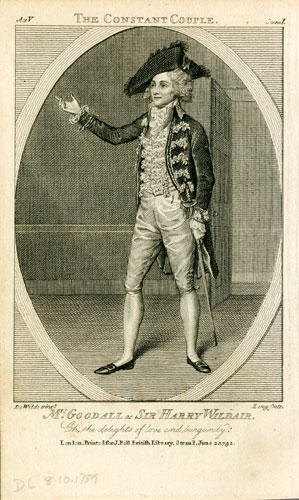Related Research Articles

Ethics or moral philosophy is the philosophical study of moral phenomena. It investigates normative questions about what people ought to do or which behavior is morally right. It is usually divided into three major fields: normative ethics, applied ethics, and metaethics.
Educational psychology is the branch of psychology concerned with the scientific study of human learning. The study of learning processes, from both cognitive and behavioral perspectives, allows researchers to understand individual differences in intelligence, cognitive development, affect, motivation, self-regulation, and self-concept, as well as their role in learning. The field of educational psychology relies heavily on quantitative methods, including testing and measurement, to enhance educational activities related to instructional design, classroom management, and assessment, which serve to facilitate learning processes in various educational settings across the lifespan.

Morality is the differentiation of intentions, decisions and actions between those that are distinguished as proper (right) and those that are improper (wrong). Morality can be a body of standards or principles derived from a code of conduct from a particular philosophy, religion or culture, or it can derive from a standard that a person believes should be universal. Morality may also be specifically synonymous with "goodness", "appropriateness" or "rightness".

The is–ought problem, as articulated by the Scottish philosopher and historian David Hume, arises when one makes claims about what ought to be that are based solely on statements about what is. Hume found that there seems to be a significant difference between positive statements and prescriptive or normative statements, and that it is not obvious how one can coherently transition from descriptive statements to prescriptive ones. Hume's law or Hume's guillotine is the thesis that an ethical or judgmental conclusion cannot be inferred from purely descriptive factual statements.
Moral reasoning is the study of how people think about right and wrong and how they acquire and apply moral rules. It is a subdiscipline of moral psychology that overlaps with moral philosophy, and is the foundation of descriptive ethics.

Moral character or character is an analysis of an individual's steady moral qualities. The concept of character can express a variety of attributes, including the presence or lack of virtues such as empathy, courage, fortitude, honesty, and loyalty, or of good behaviors or habits; these attributes are also a part of one's soft skills.
Moral agency is an individual's ability to make moral choices based on some notion of right and wrong and to be held accountable for these actions. A moral agent is "a being who is capable of acting with reference to right and wrong."
Moral psychology is a field of study in both philosophy and psychology. Historically, the term "moral psychology" was used relatively narrowly to refer to the study of moral development. Moral psychology eventually came to refer more broadly to various topics at the intersection of ethics, psychology, and philosophy of mind. Some of the main topics of the field are moral judgment, moral reasoning, moral sensitivity, moral responsibility, moral motivation, moral identity, moral action, moral development, moral diversity, moral character, altruism, psychological egoism, moral luck, moral forecasting, moral emotion, affective forecasting, and moral disagreement.
Lawrence Kohlberg's stages of moral development constitute an adaptation of a psychological theory originally conceived by the Swiss psychologist Jean Piaget. Kohlberg began work on this topic as a psychology graduate student at the University of Chicago in 1958 and expanded upon the theory throughout his life.
Academic dishonesty, academic misconduct, academic fraud and academic integrity are related concepts that refer to various actions on the part of students that go against the expected norms of a school, university or other learning institution. Definitions of academic misconduct are usually outlined in institutional policies. Therefore, academic dishonesty consists of many different categories of behaviour, as opposed to being a singular concept.
An educational film is a film or movie whose primary purpose is to educate. Educational films have been used in classrooms as an alternative to other teaching methods.
Evolutionary ethics is a field of inquiry that explores how evolutionary theory might bear on our understanding of ethics or morality. The range of issues investigated by evolutionary ethics is quite broad. Supporters of evolutionary ethics have claimed that it has important implications in the fields of descriptive ethics, normative ethics, and metaethics.
Secular ethics is a branch of moral philosophy in which ethics is based solely on human faculties such as logic, empathy, reason or moral intuition, and not derived from belief in supernatural revelation or guidance—a source of ethics in many religions. Secular ethics refers to any ethical system that does not draw on the supernatural, and includes humanism, secularism and freethinking. A classical example of literature on secular ethics is the Kural text, authored by the ancient Indian philosopher Valluvar.
Character education is an umbrella term loosely used to describe the teaching of children and adults in a manner that will help them develop variously as moral, civic, good, mannered, behaved, non-bullying, healthy, critical, successful, traditional, compliant or socially acceptable beings. Concepts that now and in the past have fallen under this term include social and emotional learning, moral reasoning and cognitive development, life skills education, health education, violence prevention, critical thinking, ethical reasoning, and conflict resolution and mediation. Many of these are now considered failed programs, i.e. "religious education", "moral development", "values clarification".
Islamic ethics is the "philosophical reflection upon moral conduct" with a view to defining "good character" and attaining the "pleasure of God". It is distinguished from "Islamic morality", which pertains to "specific norms or codes of behavior".
Values education is the process by which people give moral values to each other. According to Powney et al. It can be an activity that can take place in any human organisation. During which people are assisted by others, who may be older, in a condition experienced to make explicit our ethics in order to assess the effectiveness of these values and associated behaviour for their own and others' long term well-being, and to reflect on and acquire other values and behaviour which they recognise as being more effective for long term well-being of self and others. There is a difference between literacy and education.
Moral development focuses on the emergence, change, and understanding of morality from infancy through adulthood. The theory states that morality develops across a lifespan in a variety of ways and is influenced by an individual's experiences and behavior when faced with moral issues through different periods of physical and cognitive development. Morality concerns an individual's reforming sense of what is right and wrong; it is for this reason that young children have different moral judgment and character than that of a grown adult. Morality in itself is often a synonym for "rightness" or "goodness." It also refers to a specific code of conduct that is derived from one's culture, religion, or personal philosophy that guides one's actions, behaviors, and thoughts.
Behavioral ethics is a field of social scientific research that seeks to understand how individuals actually behave when confronted with ethical dilemmas. It refers to behavior that is judged within the context of social situations and compared to generally accepted behavioral norms.
Political ethics is the practice of making moral judgments about political action and political agents. It covers two areas: the ethics of process, which covers public officials and their methods, and the ethics of policy, which concerns judgments surrounding policies and laws.

Sentimental comedy is an 18th-century dramatic genre which sprang up as a reaction to the immoral tone of English Restoration plays. In sentimental comedies, middle-class protagonists triumphantly overcome a series of moral trials. These plays aimed to produce tears rather than laughter and reflected contemporary philosophical conceptions of humans as inherently good but capable of being led astray by bad example. By appealing to his noble sentiments, a man could be reformed and set back on the path of virtue. Although the plays contained characters whose natures seemed overly virtuous and whose problems were too easily resolved, they were accepted by audiences as truthful representations of the human predicament.
References
- 1 2 Newren, Edward F. (1974). The trigger film: Its history, production, and utilization (PDF). Association for Educational Communications and Technology Annual Convention: Atlantic City, New Jersey, March 17-21, 1974.
- ↑ Nichols, Julia (August 1994). "The trigger film in nurse education". Nurse Education Today. 14 (4): 326–330. doi:10.1016/0260-6917(94)90145-7. PMID 7968983.